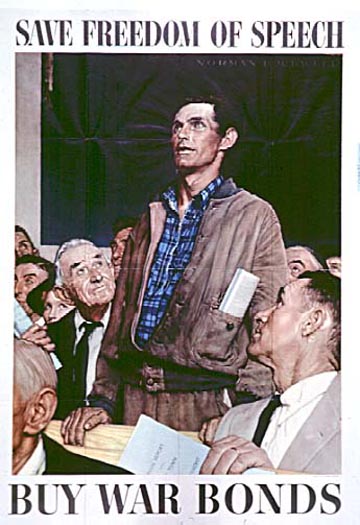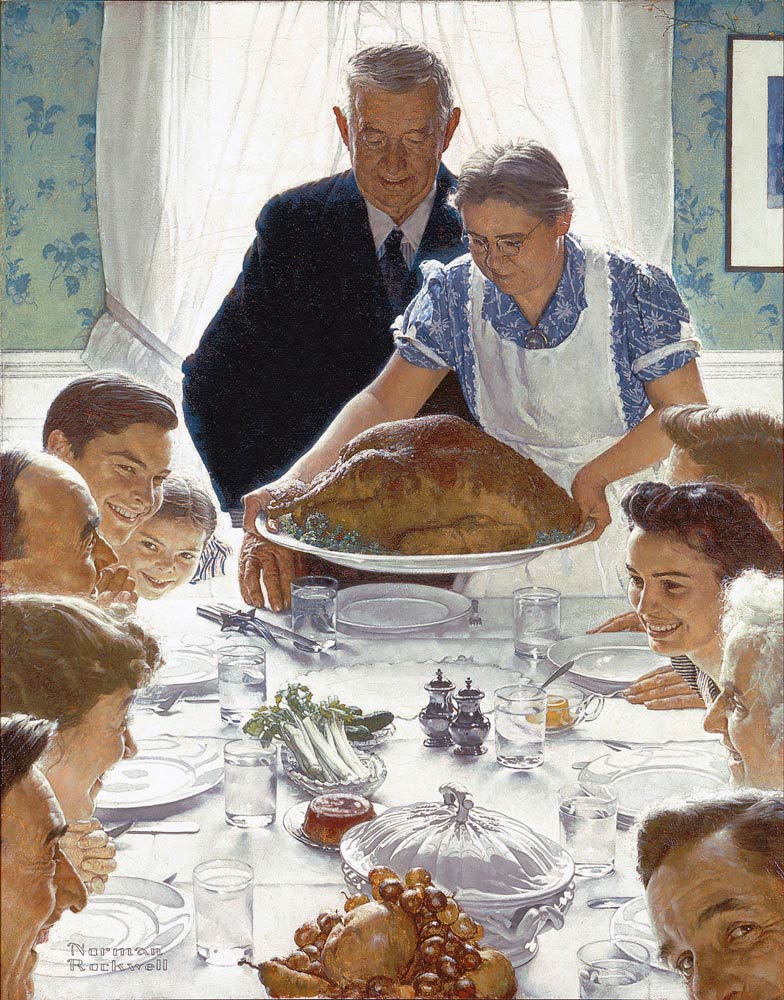1. Freedom of speech
In wartime in any country, freedom of speech is definitely not a top priority.
Ironically, freedom of speech decreased in America during world war ii. America entered the war on behalf of the freedom, yet violated it by reading soldier's letters home and using spies, with the justification that it was war time.

2. Freedom of worship
One of the main reasons why America is America is based on our earliest history: a group of puritans wanted to break from Catholic England and start all over. This is just one of many nostalgic arguments hidden in Roosevelt's speech.
On an unrelated note, it could be true that the U.S.' victory in the war had a hand in spreading this ideal. In the 1940s, Japan's emperor, was in power. At this time, the main religion in the country was based on the ideals of Shintoism and worshipping Showa himself. After the war, Japan remade its constitution and dropped its religious affiliation.
This point is an interesting one. What exactly was Roosevelt referring to, anyway? According to the Carnegie council, it originated long before world war ii, during the Great Depression. Roosevelt appealed to Americans with his point referencing all of his New Deal accomplishments. After all, his speech couldn't be: "we deserve freedom of speech, freedom of worship, freedom of social security, a minimum wage, housing, railroad restrictions, unemployment insurance" etc.

Why is this the one we all remember?
It was another point Roosevelt made appealing to not only the Americans, but the world, who had undergone all of the atrocities of world war i. It is also another ironic point because going into war ensures fear. But what he probably meant was that going into war would be scary at first, but ensure peace and prosperity later, which was an American ideal throughout the entire course of the war. However, though he didn't live to see it, the bomb droppings in Hiroshima and Nagasaki would haunt the rest of the world forever. In the post-war America became rivals with the soviet union, and a cold war commenced, which was lacking in warfare, but heavy in trepidation and the threat of nuclear warfare.

sources
http://www.carnegiecouncil.org/education/001/four_freedoms/5226.html
http://faithandheritage.com/2016/08/the-nuremberg-trials-theonomy-condemned/
This is a very good post. I appreciate how you described each of the four points that Roosevelt insisted on throughout the war. It seems that to this day, the American government has made an effort in trying to insure all these freedoms for their citizens, although some say specific people's rights have been limited recently. It's also interesting how the book we are reading (Freedom From Fear) got its name from this address, probably due to its appealing alliteration.
ReplyDelete